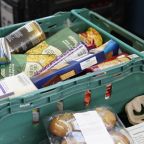
Rise in people struggling with rent
More people in Exeter are struggling to pay rents and council tax according to the latest figures from Exeter Citizen’s Advice Bureau (CAB).
The local charity reports major increases in some of the types of debt and money problems being reported among the 5,000 people who visited the charity for advice in the last year.
Significantly the charity reports a72 per cent increase in problems about housing association rent arrears and a 59 percent increase in problems about local authority rent arrears indicating that people are struggling with .
The charity also reports a 58 percent increase in problems about Council Tax arrears, a 42 per cent increase in problems about Bankruptcy and Debt Relief Orders (DROs) and a 28 percent increase in problems about telephone and broadband debts.
However the charity also welcome signs that people are seeking help earlier as the average clients personal debt fell by 30 per cent to £8,960.
Exeter CAB Chief Executive Steve Barriball said: “In the last year we helped 4,906 people directly with advice. The statistics offer some good news in that the level of indebtedness, on average, is reducing. This is an indication that many clients are heeding our warning about taking action early and not burying their heads in the sand and hoping it will go away.
“However, on the flip side, the impact on households remains serious with many facing the loss of their home or potential legal actions. The most worrying aspect of these annual advice trends is the significant increase in non-discretionary spending, or ‘priority debts’, such as rent and council tax arrears, and the increase in enquiries about bankruptcy and debt relief orders.”
Steve added: “It’s good news that things are looking up on the economic front, but for many individuals and families the legacy of recession remains. The combination of squeezed wages, the impact of welfare reform, rising energy costs and childcare costs, will not be erased overnight.
“Pressures on household budgets and a lack of affordable housing are contributing to the increase in arrears.”
One couple facing this pressure are Jane and Max Hall, who following an accident at work saw their circumstances drastically change in their household income.
Max, 50, from Exeter previously worked full time, but have been unable to work since last February after he severely damaged his back.
“His spine was damaged when a disc popped out. He has had spinal surgery and had two discs removed. He tried to work, but it got progressively worse and he is now medically retired.” Said his wife, Jane.
Jane, 48, had been the sole carer for her mother who has Alzheimer’s disease, and received payment for this
But when Max was also diagnosed with the lung disease COPD (Chronic Obstructive Pulmonary Disease), Jane became unable to look after both her mother and her husband - so her mother went to live at Jane’s sister’s house – and the payments she was receiving were cancelled.
She says: “Our debts were relatively small, but it was after Christmas that I realised we could not pay them back and that is when we went to the CAB for help.
“They were so helpful. They looked at everything for us; we discovered that my husband was not on the right amount of Employment & Support Allowance – the disability allowance he receives.
“We have cut back on everything, we got rid of Sky, got lower contracts on our phones, stopped spending money. We were just scraping through.
“I don’t spend much at the supermarket, we don’t have a social life – we go out once in a blue moon. It just means that day-to-day living is quite boring.’
“My financial situation is not any better, but thanks to the CAB I am not worried any more. My debt is not even £2,000, but when you are unable to pay something back it is a very worrying time.”
Steve Barriball added: “At present, low interest rates have helped some people with mortgages. However, if we see increases in interest rates it is likely to hit first time buyers hardest.
“We are committed to provide the advice people need for the problems they face. However, we can only continue to do this if the bureau has the necessary resources and we need to increase public and business donations to that end.”
Exeter CAB receives local government and contract funding, but it also relies on donations from the public and business.
Alternatively, donations can be made in person at the Bureau offices on King William Street in Exeter.













